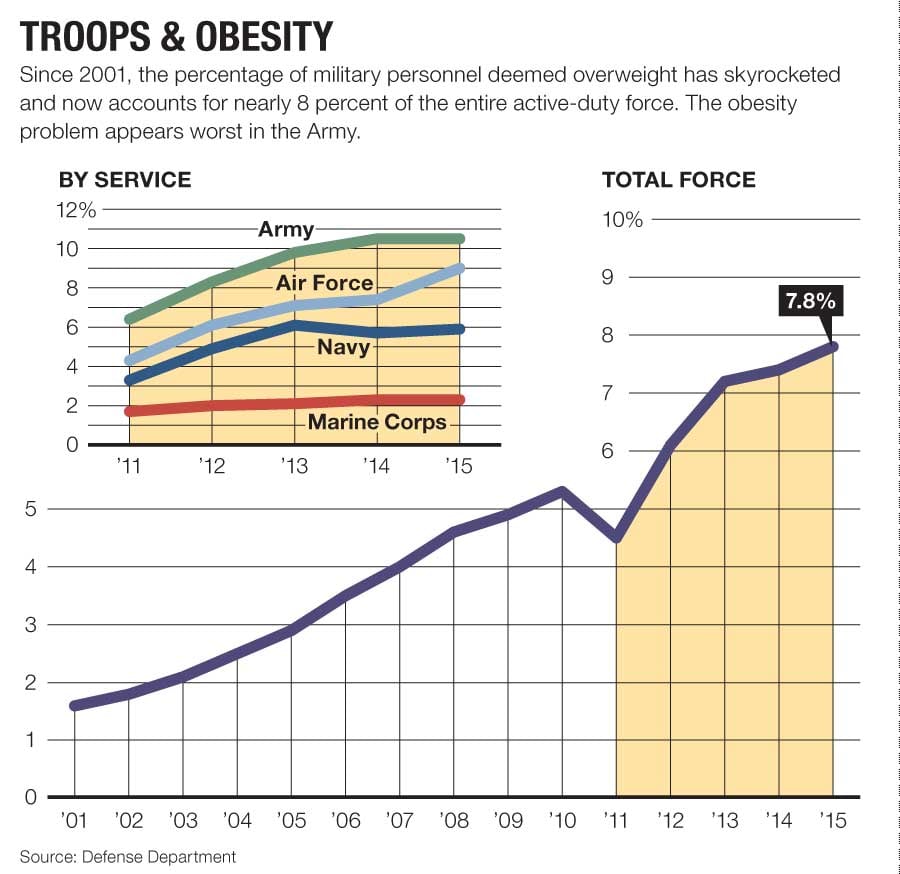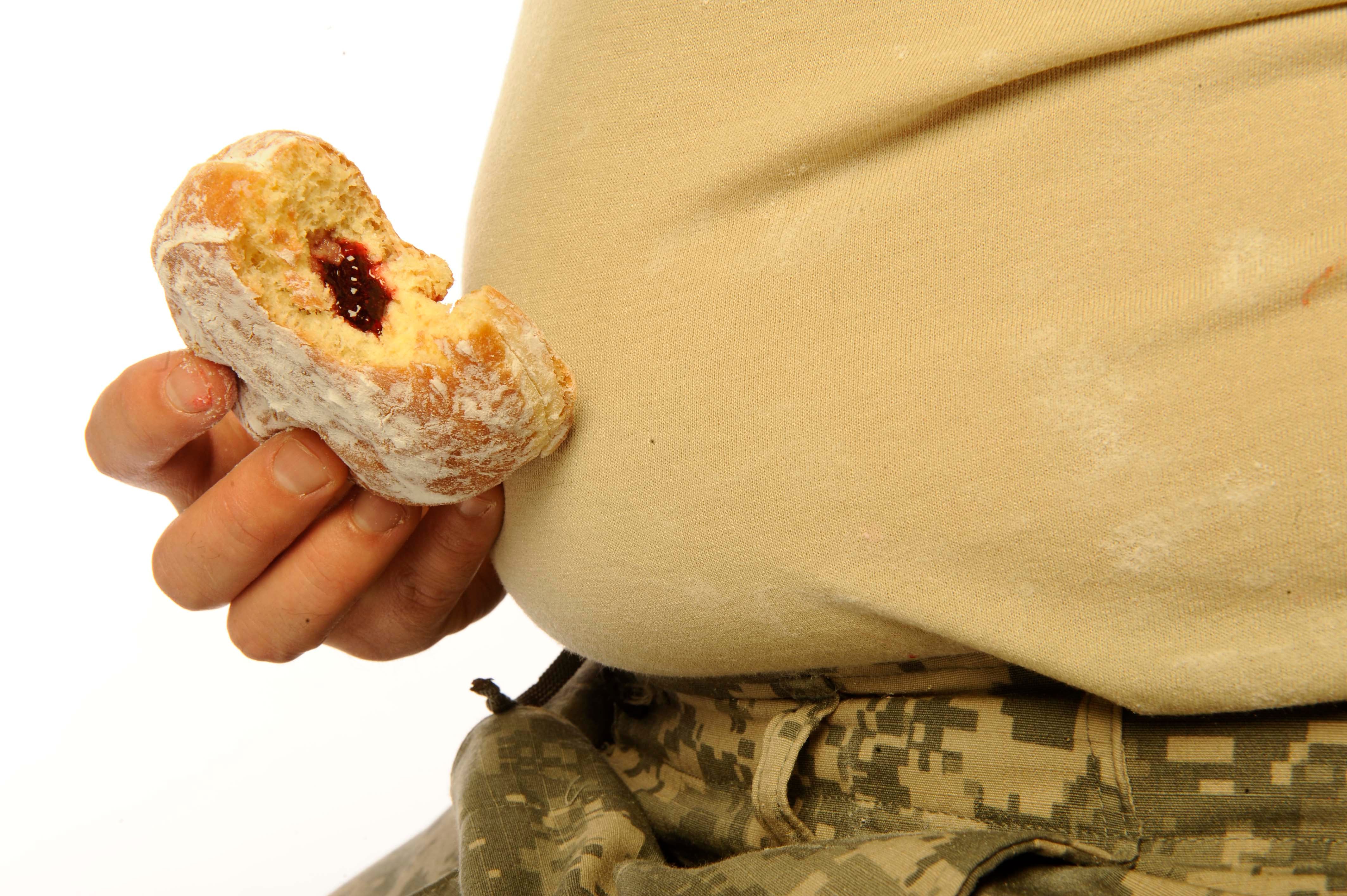The Pentagon expects to have a decision on changes to the dreaded “tape test” by next summer, potentially overhauling one of the main ways it evaluates service members' fitness and body composition.
For more than a year the Defense Department has been working with the services on potential changes that could be made to the force-wide policy that dictates how military calculates service members' body fat composition, which for a generation has mainly involved a tape test that relies on several key measurements of body size and height-weight proportions.
The tape test has been widely criticized as a method that is inaccurate and unfairly penalizes people with certain body types. Failure to meet the services' body composition standards can result in involuntary separation.
That policy is formally known as Department of Defense Instruction 1308.3, “DoD Physical Fitness and Body Fat Programs Procedures."
“The department is actively working closely with the services on this issue and we expect to have results we can discuss in late spring or early summer," said Pentagon spokeswoman Lt. Col. Carla Gleason. "Body composition standards are an important issue for the department, but currently all of the discussions are pre-decisional.”
RELATED

The existing 1308.3 instructions on how to measure body fat are specific to the point of blushing, to include guidance such as “apply the tape so that it makes contact with the skin, conforms to the body surface being measured, and does not compress the underlying soft tissues ... In the hip circumference measurement, however, you may need firmer pressure to compress standard physical training uniform or gym clothing.”
Other options could include using MRIs, water displacement or CT scans, methods that are more accurate but also more costly and can be time consuming. Potential changes to the tape test are part of a larger overhaul the military is carrying out across the services to reshape fitness tests and get more forces deployable. For example, earlier this year the Army introduced its first new fitness test in 40 years.
When Military Times first reported that the Defense Department was considering overhauls for its fitness tests, concerned military personnel wrote in, wondering if the test would account for things such as injuries.
In the months since, DoD has refined its deployability policy to provide exemptions for certain combat injured forces but that review does not give long-term exemptions to personnel who were injured outside of combat.

Tara Copp is a Pentagon correspondent for the Associated Press. She was previously Pentagon bureau chief for Sightline Media Group.




